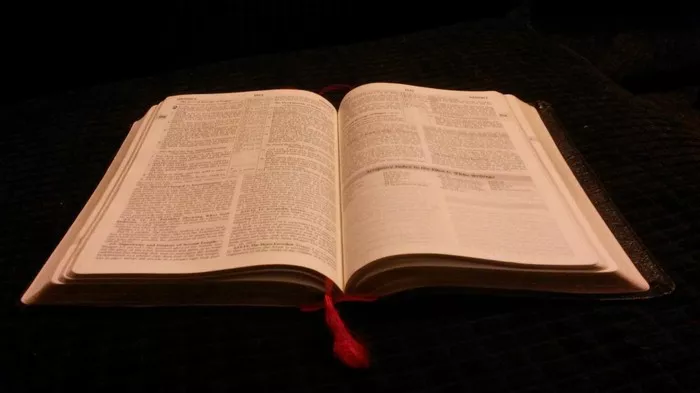The biblical figure of Boaz is renowned for his role in the narrative of Ruth, a tale of loyalty, redemption, and love. Boaz‘s character is often celebrated for his kindness, integrity, and generosity towards Ruth, a Moabite widow, and her mother-in-law, Naomi. However, amidst the admiration for his virtues, questions linger about Boaz’s marital status. How many wives did Boaz truly have? Unraveling this enigma requires a deep dive into biblical texts, historical context, and scholarly interpretations.
Understanding Boaz: A Historical Context
Boaz is primarily known from the Book of Ruth, which is nestled within the Hebrew Bible‘s Ketuvim, or Writings. Set against the backdrop of the time of the Judges, the narrative unfolds in the agrarian society of ancient Israel. Boaz emerges as a prominent figure in Bethlehem, a man of wealth and influence, overseeing his fields during the barley harvest.
The Book of Ruth portrays Boaz as a kinsman-redeemer, a relative with the legal obligation to marry Ruth and perpetuate the lineage of her deceased husband, Mahlon. Boaz’s pivotal role in the story reflects societal norms and customs of ancient Israel, where familial ties and obligations held significant importance.
The Biblical Account: Boaz’s Marital Status
Delving into the biblical text provides insights into Boaz’s marital status. The Book of Ruth does not explicitly mention Boaz’s wives, focusing instead on his interactions with Ruth and Naomi. However, biblical genealogies offer glimpses into Boaz’s family lineage.
In the Book of Ruth (Ruth 4:21-22), Boaz is identified as the son of Salmon and Rahab. This lineage connects Boaz to the tribe of Judah, tracing his ancestry back to the patriarchs of Israel. While Rahab is mentioned as Boaz’s mother, the text remains silent about additional wives or concubines.
Exploring Interpretations: Scholarly Perspectives
Scholars and theologians have grappled with the question of Boaz’s marital status, offering diverse interpretations based on biblical exegesis and historical context. Some interpretations suggest that Boaz may have had multiple wives, a practice not uncommon in ancient Near Eastern societies.
One viewpoint draws attention to the cultural norms prevalent during Boaz’s time. Polygamy was an accepted practice in many ancient societies, including Israel. Proponents of this perspective argue that Boaz, as a wealthy and influential figure, might have adhered to the customs of his era, potentially taking more than one wife.
Conversely, other scholars emphasize the silence of the biblical text regarding Boaz’s marital status. They contend that the absence of explicit mention indicates Boaz’s monogamous relationship, focusing solely on his union with Ruth as depicted in the narrative.
Examining Historical Context: Polygamy in Ancient Israel
To understand Boaz’s marital situation, it is essential to consider the broader historical context of ancient Israel. Polygamy was indeed practiced in ancient Israel, with prominent figures such as King Solomon known for having multiple wives and concubines.
The Hebrew Bible provides instances of polygamous relationships among patriarchs and kings, reflecting the cultural norms and societal structures of the time. While polygamy was not explicitly condoned or condemned in biblical texts, its prevalence underscores its acceptance within ancient Israelite society.
Interpreting Boaz’s Silence: Theological Implications
Boaz’s silence regarding his marital status invites theological reflection and speculation. Some theologians interpret the omission of Boaz’s wives as a deliberate narrative choice, emphasizing the centrality of his relationship with Ruth within the story’s framework.
From a theological perspective, Boaz’s character embodies virtues such as compassion, righteousness, and faithfulness, qualities that resonate deeply with the narrative’s themes of redemption and providence. Whether monogamous or polygamous, Boaz’s character serves as a symbol of God‘s grace and provision in the lives of Ruth and Naomi.
Conclusion
In conclusion, the question of how many wives Boaz had remains shrouded in ambiguity and scholarly debate. While the biblical text provides scant evidence regarding Boaz’s marital status, interpretations vary, reflecting differing perspectives on ancient Israelite customs and societal norms.
Whether Boaz was monogamous or practiced polygamy, his character transcends mere historical inquiry, embodying timeless virtues that continue to inspire and resonate with readers of the Book of Ruth. Ultimately, the mystery surrounding Boaz’s marital status invites reflection on the complexities of biblical interpretation and the enduring relevance of its narratives in contemporary discourse.


